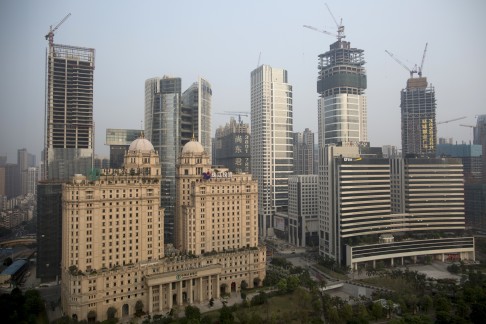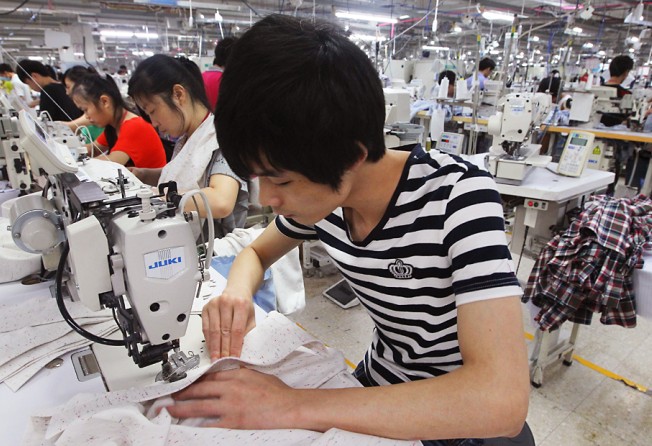
Guangdong to loosen hukou household registration system for millions of migrants

Guangdong is set to relax its rules for household registration, or hukou, to attract labour and support an ambitious plan to build towns in less-developed areas.
The changes should make it easier for migrant workers to reunite with their families and non-local graduates to change jobs.
The move was revealed by deputy provincial police chief Zheng Dong at a recent seminar with government advisers, the Southern Metropolis Daily reported yesterday.
It is hoped the policy will benefit workers from urban and rural areas within Guangdong, as well as other provinces.
Under the plan, migrants and their spouse, parents and children can apply for local residency in small and medium-sized cities in the province, as long as the migrant has a stable job and accommodation there, the report said.
The thresholds for bigger, rapidly crowding cities will be higher, however.
For instance, most prefecture-level cities would require applicants to have had a stable job and home for a minimum of three years, as well as have paid local social security taxes for an unspecified period.
For even bigger cities in the prosperous Pearl River Delta, the criteria would be raised further, to more than five years' steady employment and three years' payment of social security taxes.
Meanwhile, a non-local graduate with a bachelor's or higher degree will be able to apply for local residency in any of Guangdong's cities, except Guangzhou and Shenzhen.
If graduates change jobs or move to another city in the province, their household registration would move with them.
Experts say the reform will help address Guangdong's labour shortage and boost ambitious plans by provincial party chief Hu Chunhua to build at least a dozen new towns within the next eight years in less-developed areas.
"The provincial government is investing greatly in developing Guangdong's north, east and west, establishing a series of industrial parks and new towns," said Peng Peng, a political researcher at the Guangzhou Academy of Social Sciences.
Measures to attract new arrivals are necessary for these cities
"They hope companies in the Pearl River Delta will move to rural areas along with skilled employees who will work there. Measures to attract new arrivals are necessary for these cities," Peng said. But migrants would only move if there were enough jobs and public services like hospitals and schools.
"Local governments should be prepared," he said.
Zheng said strict population controls would be imposed on Guangzhou and Shenzhen, according to the report.
Liu Kaiming, a labour researcher at Shenzhen's Institute of Contemporary Observation, said both cities were under huge population pressure. "Guangzhou will see its population reach 18 million by 2020 and Shenzhen's will be 11 million," Liu said.
"The two cities' population policies will certainly be aimed at limiting the inflow of people.
"At the same time, they will try to attract more highly qualified talent from home and other provinces to Guangzhou," Liu added.
"[But] soaring living costs and unfriendly population policies will prevent young non-locals from settling down in the two cities."